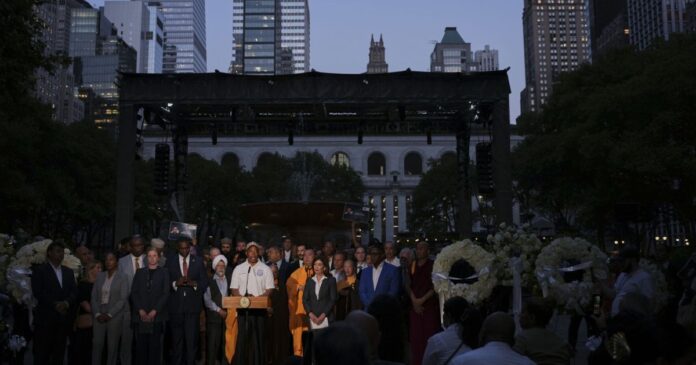Tragedy in Manhattan: The Shocking Events Unfolding
The Incident
In a harrowing turn of events on a seemingly routine Monday, a shooting at a Manhattan office building left four individuals dead, including the shooter. Shane Tamura, 27, entered the lobby of the building, which houses the National Football League’s headquarters, and initiated the tragic series of events. Witnesses reported a sense of disbelief as the gunfire erupted, transforming a typical workday into chaos.
The Shooter’s Background
Tamura, described as an unremarkable employee at a Las Vegas casino, had connections that would later raise chilling questions. Authorities disclosed that he purchased the firearm used in the attack, along with the vehicle he drove cross-country, from his supervisor at the casino. This revelation casts a stark light on the relationships formed in everyday workplaces and how they might intertwine with tragic events.
Timeline of Events
On that fateful Monday, Tamura began his rampage in the office building’s lobby, fatally shooting three individuals almost immediately. Eyewitness accounts detail the panic and confusion that ensued, as employees and visitors scrambled for safety. Following these initial shootings, he ascended the elevator to the 33rd floor, where he took the life of a fourth victim before turning the gun on himself.
The Aftermath
The aftermath of the shooting left the building in shock. First responders arrived swiftly, but it was too late for those who had been shot. Amid the chaos, messages from local authorities and emergency services conveyed a sense of urgency and concern for the victims and their families.
Public Reaction
The public’s reaction was swift and emotional. Social media platforms erupted with condolences for the victims and their families. Many questioned the effectiveness of current gun control measures, expressing frustration and anger over the ease with which Tamura was able to procure both the weapon and the vehicle.
Legal and Corporate Repercussions
As investigations unfold, questions rise regarding the implications for the Las Vegas casino and its employees. The supervisor who sold Tamura the firearm may face legal scrutiny, leading to discussions about corporate responsibility in contexts of violence. This incident could ignite new conversations about firearms in the workplace and the extent of background checks and training needed for employees in sensitive positions.
Psychological Impact
Beyond the immediate victims, the psychological toll of such violent events ripples through communities, especially in high-profile settings like corporate offices. Employees who experienced the traumatic events firsthand may now face long-term effects, including PTSD, anxiety, and distrust in their work environment.
Community Response
Local organizations and advocacy groups have started to mobilize in response to the tragedy. Support networks have been established for those affected, providing resources for counseling and emotional assistance. The community’s response exemplifies resilience amid tragedy, with many rallying together to support one another during this dark time.
National Dialogue
This tragic incident has reignited debates over gun control and public safety across the nation. Advocacy groups are calling for more stringent regulations surrounding the sale of firearms, particularly in situations involving workplace relationships. As discussions evolve, the focus remains on finding effective solutions to prevent similar tragedies in the future.
This unfolding story highlights the complexities surrounding workplace relationships, gun ownership, and community safety. As the investigation continues, the hope is not only for justice for the victims but also for a broader understanding of how such tragic events can be prevented.
